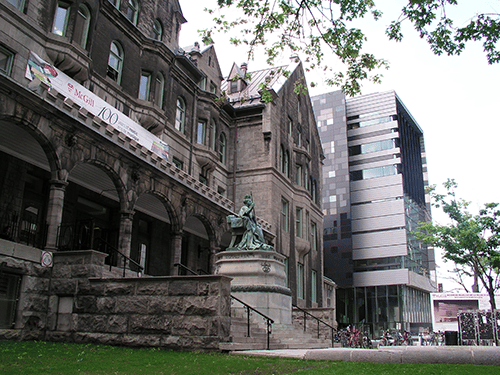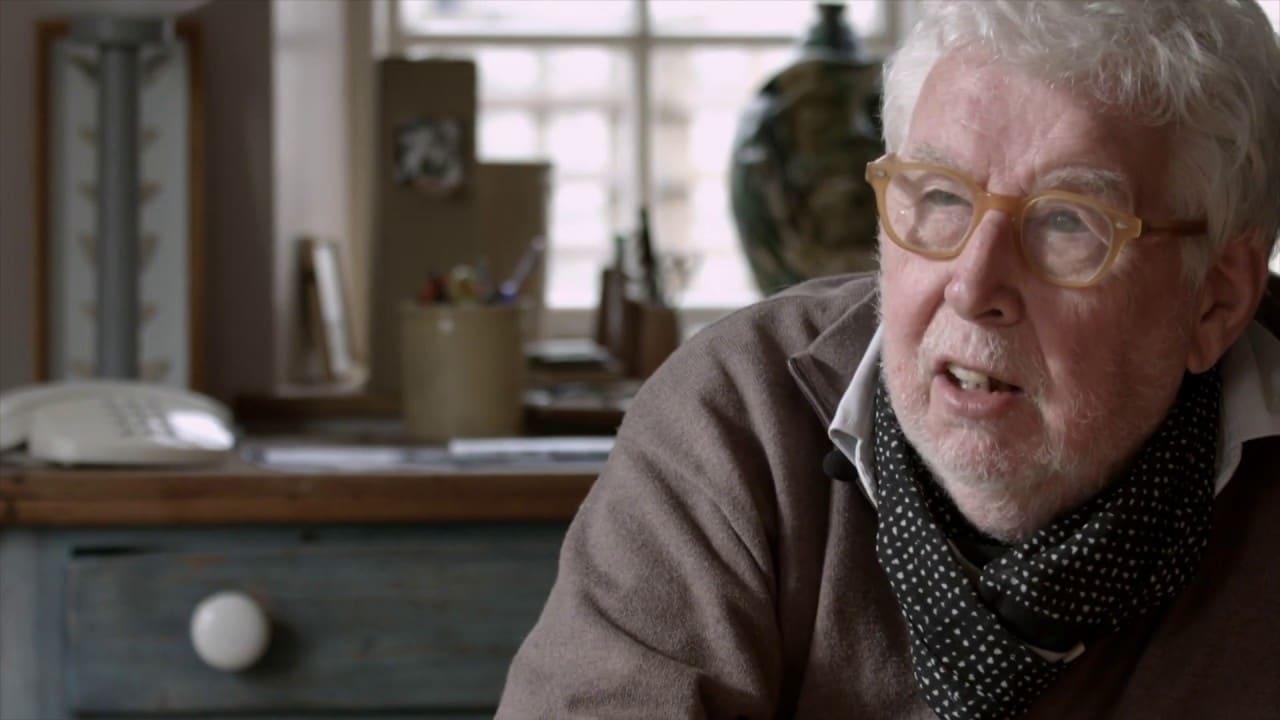Canada shuts down major conservatoire
NewsThe Conservatory of Music at Montreal’s McGill University is to cease operations next summer, after 118 years of teaching.
From CBC News:
The Conservatory, which was run by the university’s Schulich School of Music, was open to the greater Montreal community, giving courses to students of all ages and offering teaching space to instructors, free of charge.
According to the school, the pandemic showed that “the Conservatory is no longer financially viable nor sustainable.” While there were over 550 students before COVID-19 hit, predictions showed that fewer than 100 students would sign up in the coming year.
Statement by McGill:
Over the course of more than a century, thousands of Montreal students have passed through the doors of the McGill Conservatory of Music – a community program of the Schulich School of Music that provides musical education through private music lessons to students of all ages. The Schulich School of Music is proud of this rich legacy, and of everyone who contributed their time and talents to advancing the musical educations of Montrealers.
The Conservatory has faced a growing number of challenges in recent years. Operational costs have increased. Historically, the School has provided the Conservatory with administrative and teaching space free of charge. As the School continues to grow its University-level programs, these spaces are now at a critical premium.
Further, as it has done with many aspects of our lives, the pandemic has dramatically changed the reality of operating the Conservatory. As an example, before the pandemic, there were close to 100 instructors working at the Conservatory and over 550 students taking private lessons each year. Last year, instruction was offered online; there were 62 instructors working and fewer than 300 private lesson students. Our best-case projection for in-person enrolment for next year would not exceed 100 students. The trend is as clear as it is unfortunate.
Given the combination of these and other factors, the Conservatory is no longer financially viable nor sustainable. It is therefore with a heavy heart that we are announcing that the School will close the Conservatory at the end of this summer. Currently registered students will finish their courses, but no new registrations will be accepted beyond the summer.
This has been an extremely difficult decision, and one made only after careful consideration and analysis. Last year, we carried out a consultation with the School’s Faculty Council members. As well, a working group, comprising administrators and teachers from the Conservatory and Schulich faculty members, reviewed the Conservatory’s current state and future prospects. The conclusions are sobering, yet unavoidable.
Although this decision is extremely sad for our staff, our instructors, and the Montreal music community, we will always be proud of the generations of pre-school to adult learners who have furthered their musical education through the Conservatory—and of the generations of instructors who made those educations possible.
Dean Brenda Ravenscroft and incoming Dean Sean Ferguson






Just to be clear : the picture above is that of the Schulich School of Music at McGill University (Montreal), NOT the McGill Conservatory.
That being said, this news is extremely sad and quite representative of our times. We are talking about a 118-year old institution which has contributed greatly to the education of countless musicians in Canada.
Is it possible to ask for a grant from Elon Musk , Bill Gates, Warren Buffet or any number of corporations that have grant programs.
I thought this might be a solution.
I don’t get it. According to this crowd, the Canadian government (or all governments) should be able to: 1) secure funding for the facilities and resources; 2) offer generous benefits packages to attract instructors; and 3) award full scholarships to encourage students to study the timeless and necessary art of music; and then 4) just bill the happy tax payer for the privilege of funding their culture. Anything less would just be selfish and uncivilized. Of course, significant cost savings could come from instructors working pro bono since western classical is so vital to their communities, but that would require musicians to actually put their money where there mouths are, and we all know the likely-hood of that happening.
I’m sorry, who is saying any of this? Any examples?
Most tax payers do not have any interest in
Music schools. Why should the support them.
You should have stopped at “I don’t get it.”
Your first sentence is abundantly true: you don’t get it.
After that, you wallow in aggrievement. “This crowd”? You assume a response and write the narrative that will fire you up even before anybody has commented.
Was Oliver being insufficiently hard-nosed by expressing sorrow at the closing of the Conservatory? Perhaps guilty of being a “bleeding heart liberal”, or something horrible like that?
How can you stand to live wallowing in such cynicism?
If you think classical music has no value and isn’t worth funding, why are you visiting and posting on a classical music site?
I think classical music should be funded.
But people i know . friends .work mates
Uncles. cousins. Neighbours who have no
Interest in music think the tax payer should
Not fund it. Only the wealthy who like music
Should pay.
BS writ large.
I have heard that Ravenscroft was deeply unpopular at her previous institution. But deans get promoted on their ability to be hard and cruel. I suspect the decision here is justified based on the numbers, but I would also bet that if this were something more politically popular (perhaps an indigenous music program) they would stick with it for a while and try to help the program recover.
OK, there seems to be a bit of ambiguity about the word “Conservatory.” It’s not the excellent Schulich School of Music at McGill that is closing down, rather a long-running side program for pre-college students that is hosted by the school. And largely, it seems, the result of reduced demand. Unfortunate, but not quite as earth-shaking as one of North America’s top music schools shutting down.
Though the demand drop here is much more precipitous, and therefore the shutdown perhaps more justified, this reminds me a lot of what happened at Longy. There, a large and long successful community music program was shut down because the profit margins couldn’t compete with those of the degree paying grad students. When gullible kids are willing to fork over $50K+ a year for a masters in flute at a second-shelf conservatoire, how can a mom paying $265 a semester for her kids’ Dalcroze classes possibly compete in terms of profit margin? And thus was a major community asset lost in Boston/Cambridge.
Hopefully that is not quite the dynamic here.
This dropping of preparatory music programs is bewildering to me. Learning to play an instrument is as good as it gets for learning life skills of focus, hand-eye coordination, listening and loving musical expression in many forms, decision making, accomplishment of tasks for feeling of pride in achievement, becoming responsible, commitment, compassion and balance, opening to deeper values, hearing beauty in oneself and others, etc.
This is what you want to go for.
Longy wiped out many teaching jobs. The decision was not done in a kind manner.
Emotionally devastating for some.Some were never ready for a survival lesson.
…where are the McGill Conservatory’s alumni when their school needs them?
Well, many of them have been unemployed due to Covid for nearly 2.5 years. And, most of them are probably not major soloists, playing full time in an orchestra, or singing in a professional choir or as an opera singer.
Elsewhere, no doubt. Graduate in a degree taken in English then move somewhere you can use it without running afoul of the law.
My understanding from the statement by the two McGill Deans is that the Conservatoire will cease operations at the end of THIS summer (i.e., 2022), not “next summer” as stated in the lead to this posting. In other words, as of September 2022 it would be gone.
Shame on you McGill University!
Shame on you cultural workers, teachers, students and parents for not standing up to this travesty.
This is a clear sign that arts and culture in these volatile times are the first to be sacrifiead to “profit-first” neo-liberal narative. Our sociery, or what ever is left of it, will be witnessing only more of these grim news unless we make a sharp turn towards a new paradigme. God luck to us all.
I wonder which of McGill’s sportsball teams will move into the vacated space?
Don’t blame it on the pandemic it is a university decision that smells.
1. a problem of vision and purpose beyond exchange values.
2. No value of complex heritage beyond entertainment and the wealthy.
3. Resistance to the idea of training complex aural perception and the human cultural instrument as a worthy goal.
4. Since “Music is a psycho-physical pursuit of values in sound and aural complex expression.” (Bela Rozsa) Like the city of San Antonio who used the same excuses, their values suck. Ray Evans Harrell, artistic director, The Magic Circle Opera Repertory Ensemble, NYC
This is misleading. The Conservatory has not been there for over a century, only a few decades. That building used to be called Royal Victoria College and was the dormitory for woman university students.
Seems odd. Okay, an enrollment drop when COVID hits. Why not wait it out just a bit longer? Seems like a weird knee-jerk reaction, for a school that didn’t charge tuition anyways.